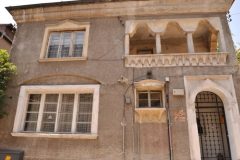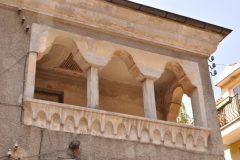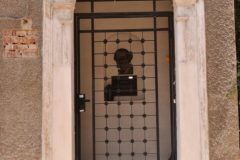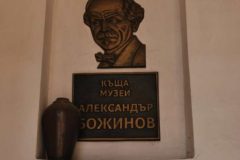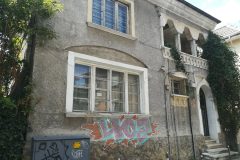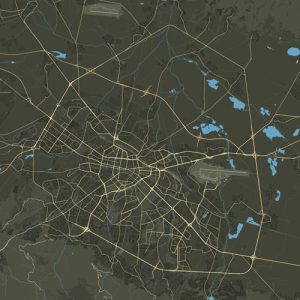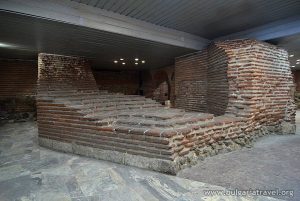Alexander Bozhinov, born in 1878 in Svishtov, played a significant role in the Bulgarian cultural and artistic scene. He graduated from high school in Sofia and joined the first graduating class of the Drawing School in 1896. Bozhinov furthered his artistic education in Munich from 1902 to 1904 and later became known as a talented painter and the creator of Bulgarian political caricature. During World War I, he served as a military artist. Bozhinov was a multifaceted individual who not only excelled in visual arts but also contributed to journalism. He founded the newspaper “Bulgaran” and became a prominent figure in the cultural circles of the time.
His two-story house, adorned with original architectural decoration, was constructed between 1923 and 1926 according to the design by architect Atanas Donkov. This residence became a hub for artists, writers, and actors, functioning not only as a dwelling but also as a gathering place for creative minds. Alongside architect Atanas Donkov and artist Boris Denev, Bozhinov organized the entertainment group “Brumbazatsi” in 1923, marking the inception of the native Puppet Theater. Bozhinov’s contributions to children’s literature include the collection of humorous poems “Golden Book for Our Children.”
In 1929, Bozhinov was elected a corresponding member of the Bulgarian Academy of Sciences (BAS), and in 1939, he became an academician. Unfortunately, with the advent of the communist regime in 1944, Bozhinov fell victim to political repression. Accused of associating with Tsar Boris III, he faced persecution despite being non-partisan throughout his life. Bozhinov, recognized as one of the leading figures in political satire, faced trial before the People’s Court, causing widespread indignation. After six months of arrest and mistreatment in 1945, he was sentenced to one year in prison and fined BGN 1,000.
In his final years, Bozhinov continued his artistic pursuits, creating numerous paintings, writing poems and feuilletons, and engaging in art criticism. As his son passed away, leaving no direct heirs, Bozhinov’s dying wish was for his home to be donated to the state. The building was declared a national cultural monument in 1998, preserving the legacy of this influential figure in Bulgarian art and culture.

